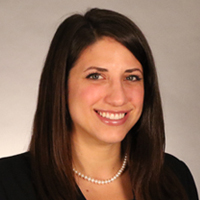Everything You Need to Know About South Dakota’s New School Choice Bill
Update 3/29/16: Today, Gov. Daugaard signed the Partners in Education Tax Credit Program into law. The program will begin providing scholarships in the 2016–17 school year. Please visit our full program page for the most up-to-date program information, including an eligibility test, fast facts, and more.
South Dakota is on the verge of becoming the nation’s 29th school choice state.
The South Dakota legislature passed a new school choice bill for a statewide tax-credit scholarship for children from low-income households, SB 159, earlier this month. The Partners in Education Tax Credit Program would be the first-ever private school choice program for the Mount Rushmore state. The Founders on the mountain would be happy to see this expansion of educational freedom!
The bill now awaits Gov. Dennis Daugaard’s signature. If signed, SB 159 would provide a tax credit to insurance companies that contribute to a scholarship-granting organization (SGO) that then would distributes scholarships for qualifying students to attend private schools.
Senate Bill 159 was authored by Sen. Phyllis Heineman, with bipartisan Co-Prime Sponsors Sen. Blake Curd, Sen. Terri Haverly, Sen. Jeff Monroe, Sen. David Omdahi, Sen. Jim Bradford, Sen. Brock Greenfield, Sen. Ried Holien, Sen. David Novstrup, Sen. Ernie Otten, Sen. Corey Brown, Sen. Jenna Hagger, Sen. Phil Jensen, Sen. Betty Olson, and Sen. Bruce Rampelberg.
The sections below represent the key parameters of this tax-credit scholarship legislation.
STUDENT FUNDING
Scholarship funding relies on contributions made by insurance companies to an SGO, in return for an 80 percent tax credit for contributions made in that fiscal year. Tax credits may be collected beginning in 2017. Only companies that are liable to pay the insurance company premium and annuity tax may claim the credit. The program is capped at $2 million in 2016–17.
The average value of all scholarships awarded by an SGO would be worth up to 82.5 percent of the state’s share of the per-student allocation ($4,023 in 2015–16). Half of the scholarship must be paid at the beginning of the first semester, and the second half at the start of the second semester.
STUDENT ELIGIBILITY
Qualifying students’ household income must not exceed 150 percent of the federal free and reduced-price lunch (FRL) program ($67,294 for a family of four in 2015–16). The student must also have either attended a public school the preceding semester, be starting K–12 school in South Dakota for the first time, or be entering either kindergarten, first grade, or ninth grade.
Once a student receives a scholarship, that student remains eligible for three years or until high school graduation, regardless of income. After the initial period of income eligibility, scholarship students remain eligible if their family income in the prior year does not exceed 200 percent of the FRL program ($89,725 for a family of four in 2015–16).
REGULATIONS ON PROVIDERS
SGOs must spend at least 90 percent of their contributions on scholarships and can carry forward no more than 25 percent of contributions from year to year. All revenue from interest or investments must be used for scholarships. SGOs must ensure scholarships are portable for students among all qualified private schools. They also must ensure the schools’ accreditation status with the state department of education annually. SGOs must notify the state of intent to provide scholarships and provide state-approved receipts to companies that offer contributions. SGOs will be subject to an audit by the auditor general to demonstrate fiscal accountability by annually submitting:
- data on contributing companies;
- data on accepted contributions;
- data on scholarships awarded and funded, including the amount awarded to students who qualify for the FRL program and the percentage of first-time scholarship recipients who were enrolled in a public school the previous year; and a
- financial audit performed by a certified public accountant.
Participating students’ parents would be required to ensure the student takes a nationally norm-referenced or statewide test while in the program.
NEXT STEPS
The bill now awaits Governor Dennis Daugaard’s signature.
Revisit this blog post regularly for updates on this bill’s progress. To be the first to know about legislative updates, please follow us on Twitter @edchoice or join our email list by signing up at the bottom of this page.




